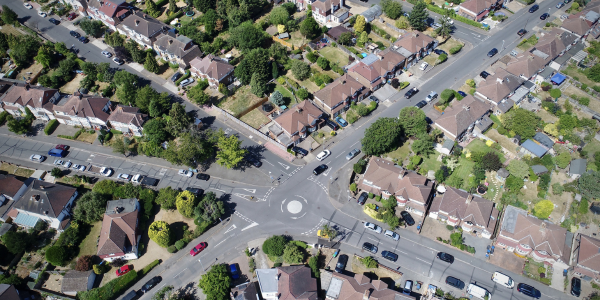As a home insurance policy holder, you may have experienced the unwelcome surprise of a home insurance renewal increase. It’s easy to be caught off guard by the increasing premiums, but understanding why they are increasing and how you should respond can make the home insurance renewal process a lot easier.
In this article, we will go through the need-to-knows of home insurance renewals – from how it works to exploring the best time to renew home insurance.
How does home insurance renewal work?
When your home insurance policy reaches the end of its term which is typically a year, you have the option to either renew your policy with the same insurer, or end it and find cover somewhere else. Your current insurer will give you a new quoted price which will help you make a decision on whether to stay or renew for a better deal. If you want to switch, you need to let your previous insurer know. You’ll also need to set up your new policy to start the same day as your previous policy expires, so you’re completely protected.
If you have auto renewal set up, your policy may automatically renew at a new rate if nothing is done on your part, ensuring continued cover. However, automatic renewal isn’t always the best option as it could lock you into a higher premium as opposed to finding a cheaper deal. Reviewing your house insurance renewal carefully, comparing quotes from other providers, and negotiating with your current insurer can help you secure the best coverage at the best price.
Why have home insurance renewals increased?
There are different reasons as to why a lot of home insurance prices increase, often driven by market conditions, severe weather and personal circumstances. Understanding why it’s gone up can help when you need to renew house insurance.
Rising costs of repairs and materials
Inflation has driven up the cost of building materials and labour, making home repairs more expensive. Premiums are adjusted to cover these higher potential repair costs.
Replacing belongings
Due to the increasing costs of mobile phones, computers, video games, furniture and carpets, the cost to replace them has also increased.
Severe weather
More frequent storms, floods, and high winds have led to an increase in claims which has pushed insurers to raise premiums to manage future risks. Examples of this are Storm Bert and Storm Darragh. Find out how climate change is impacting home insurance here.
Changes to your property
Home improvements such as adding an extension or a more expensive kitchen increases the rebuild cost of your home which can raise your insurance premiums.
Your claims history
If you claim on your home insurance, your premium could increase at your next renewal date. How much it goes up by will depend on the type of claim and how many claims you’ve made.
What can you do to reduce the home insurance renewal increase?
There are a few things you can do to ensure you get a good deal on your home insurance renewal. This includes:
Considering switching instead of renewing
Settling for your renewal quote price may mean that you’re paying more than needed as you may be able to find cheaper policies elsewhere. Seek the help of an insurance broker to explore your options and find competitive rates.
Review and adjust your cover
To ensure you aren’t paying for any unnecessary extras, review your policy. When it comes to your home insurance renewal, tailor your policy to suit your current needs, but make sure to avoid underinsuring your property and its contents.
Increase your excess
The amount you have to pay toward the cost of a claim is called ‘excess’. Increasing your excess can help cut the cost of your insurance, but keep in mind that the excess you choose is something you can afford to pay if you need to make a claim.
Consider combining policies
Combining both buildings and contents cover can work out cheaper than individual policies as it reduces insurers’ administrative costs. Some insurance companies may offer discounts if you combine two policies together.
Pay annually instead of monthly
If you can afford to do so, paying for your policy in one go usually avoids any interest charges, so it works out cheaper overall than spreading the cost over monthly payments.
When is the best time to renew home insurance?
As your house insurance renewal approaches, start exploring your options around three to four weeks before your current policy expires. This allows you to consider your options and helps you decide whether you want to stick with the same insurer or switch to another policy that may be cheaper.
By starting your search a few weeks before renewal, you’ll have time to compare quotes, review your cover needs, and negotiate with your current insurer if needed. If you’re letting your policy auto renew, nothing needs to be done. However, ensure you take the time to read through your documents to check that everything is accurate. This is very important as anything incorrect may affect the validity of your cover.
Renew house insurance with Nest GI
When it’s time for your house insurance renewal, we make it easy to secure reliable cover at a competitive price. Our personalised service ensures you get the right policy tailored to your needs.
We’re here to help you navigate the complexities of home insurance renewal, from reviewing your current cover to finding better value options. If you want to find out more on how we can help when you need to renew house insurance, get in touch with us today.








